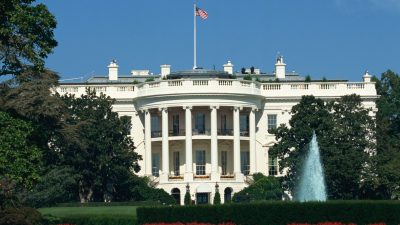
President Biden’s administration announced several changes to the Paycheck Protection Program (PPP), including instituting a two-week period, starting this Wednesday, February 24, during which only businesses with fewer than 20 employees will be able to apply for PPP loans.
Here is a summary of the five changes to the PPP from the Biden administration:
1. Institute a 14-day period, starting this Wednesday, February 24, during which only businesses with fewer than 20 employees can apply for relief through the Program.
98 percent of small businesses have fewer than 20 employees, and these businesses often struggle more than larger businesses to collect the necessary paperwork and secure relief from a lender. The 14-day exclusive application period will allow lenders to focus on serving these smallest businesses.
2. Help sole proprietors, independent contractors, and self-employed individuals receive more financial support.
These types of businesses, which include home repair contractors, beauticians, and small independent retailers, make up a significant majority of all businesses. The White House, in conjunction with the SBA, will revise the loan calculation formula for these applicants so that it offers more relief. The Biden administration is also setting aside $1 billion in PPP funding for businesses in this category without employees located in low- and moderate-income (LMI) areas.
3. Eliminate restrictions on small business owners with prior non-fraud felony convictions.
Currently, a business is ineligible for PPP if it is at least 20 percent owned by an individual who has either: (1) an arrest or conviction for a felony related to financial assistance fraud within the previous five years; or (2) any other felony within the previous year.
4. Eliminate an exclusionary restriction that prevents small business owners who are delinquent on their federal student loans from obtaining relief through the Paycheck Protection Program.
Currently, the PPP is not available to any business with at least 20 percent ownership by an individual who is currently delinquent or has defaulted within the last seven years on a federal debt, including a student loan. Working with the Departments of the Treasury and Education, the SBA will remove the student loan delinquency restriction to broaden access to the PPP.
5. Ensure access for non-citizen small business owners who are lawful U.S. residents by clarifying that they may use Individual Taxpayer Identification Numbers (ITINs) to apply for relief.
The PPP statute is clear that all lawful U.S. residents may access the program, but a lack of guidance from the SBA has created inconsistency in access for ITIN holders like Green Card holders or those here on a visa. The SBA will address this inconsistency by issuing clear guidance in the coming days that otherwise eligible applicants cannot be denied access to the PPP because they use ITINs to pay their taxes.
In addition to these five changes, the following steps have been taken to ensure equitable distribution of relief:
- Addressing waste, fraud, and abuse across all federal programs. Unlike the previous round of the PPP, loan guaranty approval is now contingent on passing SBA fraud checks, Treasury’s Do Not Pay database, and public records. The SBA now also conducts manual loan reviews for the largest loans in the PPP portfolio and a random sampling of other loans. The SBA has worked, and will continue to work, with its lender partners to create streamlined processes to resolve issues as quickly as possible, while still ensuring taxpayer dollars are spent wisely.
- Promoting transparency and accountability by improving the PPP loan application. To encourage self-reporting of demographic data and better illustrate the impact the PPP is having across various population segments, the Biden-Harris administration has revamped the PPP application.
Do you have questions about the new PPP changes? Please contact your ALL tax advisor or call us at 617-738-5200.
Source: White House
Recent Articles
Rising Construction Costs from COVID-19 Lead to New Bidding Approaches
Like other essential industries, t [...]
Nexus Requires Compliance and Begins by Filing Tax Returns
“Nexus” may sound like the name of [...]
The Impact You May See from the Build Back Better Act’s Tax Changes
The Build Back Better Act came und [...]




